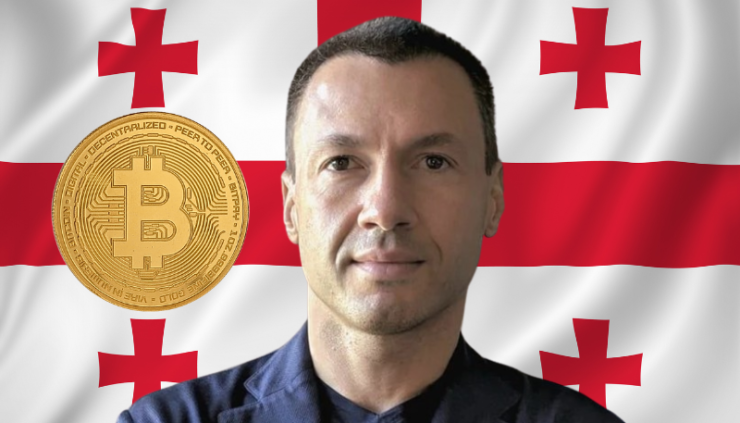In a dramatic turn of events, George Bachiashvili, a former aide to Georgia’s ex-Prime Minister Bidzina Ivanishvili, has fled the country amid accusations of embezzling thousands of Bitcoin.
The case, which intertwines politics, high finance, and cryptocurrency, has sent shockwaves through Georgia’s legal and financial circles, raising questions about regulatory oversight and political influence in the country’s justice system.
Bitcoin Embezzlement Allegations and Legal Pursuit
Bachiashvili, a well-known venture capitalist and founder of Mission Gate, is accused of misappropriating 8,253 BTC valued at millions of dollars between 2015 and 2017. Prosecutors claim that he used a $5 million loan from Ivanishvili’s Cartu Bank to fund Bitcoin mining operations at Bitfury but later manipulated financial reports to hide the true extent of the profits.
Reports suggest that Ivanishvili initially approved the venture but later decided to liquidate the mined Bitcoin in 2016 due to concerns about the cryptocurrency market’s volatility. While Bachiashvili repaid the loan and transferred $536,900 in profits to the bank’s director in 2017, Ivanishvili insists that the actual returns from the mining operation were significantly higher and that he was misled about the true value of the assets.
Charged under Articles 182 and 194 of the Georgian Criminal Code for misappropriation of funds and money laundering, Bachiashvili was granted bail of 2.5 million GEL ($900,000). However, on March 2, he fled the country, crossing into Armenia in violation of his bail conditions. In response, a Georgian court ordered his immediate imprisonment, with Judge Giorgi Gelashvili ruling that his escape justified stricter detention measures.
A High-Stakes Escape and Uncertain Whereabouts

While initial reports placed Bachiashvili in Armenia, local news outlet TV Pirveli later confirmed that he had left the country, escaping to an undisclosed location. Despite mounting pressure, the fugitive investor has refused to disclose his whereabouts, even to major international media outlets like Reuters.
The case has escalated tensions within Georgia’s political landscape, as Transparency International and other organizations have questioned the fairness of the prosecution. Critics argue that the legal action appears to serve Ivanishvili’s private financial interests rather than an objective pursuit of justice.
Political Power Play or Financial Crime?
Before their fallout, Bachiashvili had served as a trusted aide to Ivanishvili, whose $7.6 billion fortune makes him one of the wealthiest figures in Georgia. As the founder of the Georgian Dream Party, Ivanishvili wields significant influence over the nation’s politics and judiciary.
Transparency International has condemned the trial, arguing that the charges lack strong legal backing. “The weakness of the prosecution’s position and the lack of evidence in this case are so evident that, in any legal system based on the rule of law, such charges would not only be inconceivable but would never even reach court proceedings,” the organization stated.
The only non-testimonial evidence presented in court includes loan documentation and a recorded phone call in which Ivanishvili allegedly instructed Bachiashvili to pay a higher interest rate to secure the loan. Robert Amsterdam, senior partner at the international law firm Amsterdam & Partners, has slammed the case as politically motivated, stating:
“The State appears to be acting in violation of the law at the behest of the capricious wishes of Ivanishvili. It’s not credible for Ivanishvili to claim he’s owed money from an eight-year-old repaid bank loan with no evidence, and then to have the matter pursued with criminal charges instead of a civil case.”
Broader Implications for Crypto and Regulation
Beyond the political drama, the case highlights the growing risks of crypto-related financial crimes in government and the urgent need for clearer regulations. Georgia, known for its favorable crypto mining policies, has long been a hub for digital asset investments. However, high-profile legal battles like this one could deter further institutional participation and force regulatory authorities to tighten oversight.
Meanwhile, Bachiashvili faces up to 12 years in prison if convicted. Some speculate that his support for Ukraine in the ongoing Russia-Ukraine conflict may have also played a role in the case, given Ivanishvili’s pro-Russian stance. Whether this is a legitimate financial crime or a politically charged prosecution remains a contentious debate.
What Happens Next?
As the hunt for Bachiashvili intensifies, the case continues to raise serious questions about Georgia’s legal system and its relationship with political elites. The outcome will not only determine his fate but could also shape the future of crypto regulation and financial governance in the region.
With increasing global scrutiny on digital asset-related crimes, governments worldwide may take this as a warning sign to introduce stricter measures on cryptocurrency investments tied to political figures.





